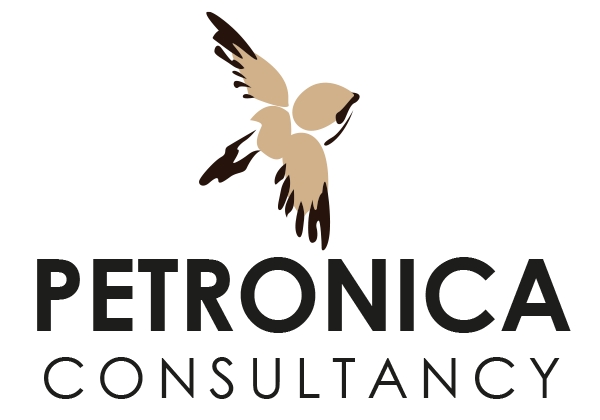ISO – It’s not about ticking boxes.

After approximately 30 years training and working in the same business sector, I had the opportunity to use the knowledge and experience I had accrued to try something totally different. Whilst both a bit scary but exciting too, I felt that the time had come to make a change in my career. Having now fully established myself, I can honestly say that I feel rejuvenated and passionate about what I do.
Following training courses, exams (I distinctly remember telling myself years ago that I would never sit another exam in my life) and a number of shadow and witnessed audits I was finally ready. I was a fully-fledged auditor.
Now at this point some of you might be groaning – “oh no, not an auditor – all they do is tick boxes”. Well that may be true in some cases and indeed most of my experience of audits in my previous life was just that – we would prepare for an audit with the same list of boxes that were to be ticked, ensure we had all the right bits of paper, put them in a file for the auditor then sit back and relax.
But I am not that type of auditor – no, I am an ISO 9001 and 14001 auditor.
ISO what? You may say. Or you might actually know what this is as your company may be certified to these Standards, or you may require them of your suppliers. Well, in case you don’t know what they are, these refer to Quality and the Environment respectively and here is my take on the main features of them:
ISO 9001 (Quality)
- Requires your company to have a good understanding of your company’s interested parties – ie what do your customers require from you? What do your suppliers, your employees, neighbours etc need from you? How do you ensure you are keeping up to date with their requirements as well as legislative and statutory requirements?
- Leadership – any company is only as good as its leaders and their priorities are fed down through the hierarchy. Therefore, it is important to ensure that the leaders are well informed and committed to the principles of the Standards through their engagement.
- Strategic planning – considering the risks of the business, changes, objectives. You’d be surprised how many businesses don’t actually take the time to strategically plan, or if they do the leaders are not communicating this to other areas of the business. Joined-up thinking is critical here.
- Resources – people, cash, machinery etc. It is difficult to run a successful business without the right people doing the right things with the right competencies – but again, you’d be surprised!
- Communication – I like to see this as top down, bottom up. Those companies that I go into who have mastered the art of communication seem to perform better than those who really haven’t quite got it.
- Process-led, risk based operations. Making it clear what is required to achieve the end result and why.
- Performance evaluation – checking to see if you got it right.
- Continual improvement – learning from any mistakes or ‘near misses’ but also embracing suggestions for improvement from staff and customers. This is an area that some companies struggle to get beyond the blame culture that has crept in, which is a shame as it is a great opportunity to hear from the people at the coal front of the business.
ISO 14001 (Environment)
- This is similar to ISO 9001 in that its structure and main principles are the same, but requires the company to consider the impact – both direct and indirect – on the environment, including the influence that company may have with customers.
- Requires the company to think of objectives to reduce the negative and increase the positive impact on the environment.
So, when I’m auditing (or consulting) how do I ensure that the company is compliant to the Standards without ‘ticking boxes’. Well, whilst there are undoubtedly some specific documents required, I obtain most of my information from discussions with the people responsible for the setting of and implementing of the strategies. So, starting with the top management and having discussions about the strategy of the company and how they have set the objectives and targets, through to sitting with people carrying out the processes to ensure that they understand and are following the same.
Depending on the type and attitude of the company will determine how the audit goes. Some companies see me as a necessary evil – quite frankly they just want the piece of paper so that they can fulfil the certification requirements of their customers. Other companies recognise the framework and tools that ISO 9001 can give to ensure there is some structure to the strategic setting and running of the company and the benefits that this can give them. I am frequently in companies where the MD or CEO say to me that going for ISO 9001 forced them to take time out to think and plan and that they have been able to expand with the knowledge that they have a firm structure in place.
From a personal perspective, I have had the satisfaction of knowing that I have added value to the companies I visit. In the past year, I have visited about 60 different companies and every single one of them is unique and I can genuinely say that I have found them all a pleasure to visit. I particularly enjoy working with companies to certification level as I see the benefits in managing resources, maintaining constant quality, improving their working practices and profits and raising the profile of the company – all at the same time.
So next time I meet you, or you meet someone who is an auditor, please don’t assume we ‘tick boxes’. Our working lives are far more challenging and rewarding!
ISO 9001 and ISO 14001 are applicable to any industry of any size and as recognised International Standards are used all over the world.
As I said, this is my interpretation of the ISO 9001 and 14001 Standards and as it is open to discussion – I’m sure that other auditors could put a different slant on it, but that’s what makes it all the more interesting……I work for several UKAS Accredited Certification Bodies as an auditor as well as independently as a consultant (think gamekeeper turned poacher) and these views are solely mine.
See more about our ISO consultancy services here, or get in touch to talk to us about your options.
